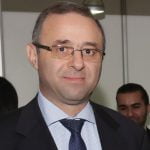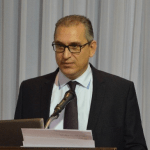To keep global warming below 2 degrees below pre-industrial levels by the end of this century, and possibly limit it to 1.5 degrees, the 2015 and 2021 United Nations Climate Change Conferences confirmed the commitment to achieve of the so-called Carbon Neutrality (zero emissions) by 2050.
To achieve this goal, the main tool is the energy transition, i.e. the transition from an energy mix centered on fossil fuels to one with low or no carbon emissions, based on renewable sources.
However, it must be considered that, although the energy transition represents an opportunity and offers advantages in terms of environmental impact, some of the interventions associated with it generate additional costs for the community. In order to reduce emissions, in addition to electrifying processes, increasing the use of renewable energy and reducing consumption, it will be also necessary to favour the development of energy communities.
Energy communities, consisting of interactive prosumers, are reaching a dominant interest in many countries in the last few years. Prosumers, by participating in energy communities, can achieve economic benefits, by maximizing the exploitation of locally produced renewable energy and by providing ancillary services to the system operators. Considering the large scale number of prosumers in an energy community and the requirement to carry out both day-ahead and real-time optimizations, new real-time and distributed optimization methods are necessary to cope with the issue of scalability while preserving the privacy of prosumers.
In this keynote, a new extreme-scale and real-time distributed parallel optimization is proposed to manage a large-scale energy community with Peer to Peer (P2P) energy exchanges. The proposed optimization is highly scalable and privacy-preserving. Simulation tests, carried out on a large energy community consisting of thousands of prosumers, demonstrated the effectiveness of the innovative optimization method both in terms of scalability of the method and privacy protection for the prosumers.
This conference aims to make participants travel through the different digital revolutions and their various applications in all areas. It aims essentially to draw their attention to the harmful and perverse effects of digital technology, particularly Artificial Intelligence (AI), on the environment and on society. In order not to slow down the AI based innovation, while preserving the social well-being, various initiatives will be presented: responsible consumption, stakeholders awareness, green ICT, ethics, etc
Renewable sources, such as photovoltaic panels and wind generators, and storage devices, like batteries and electric vehicles, are usually connected to the grid for cogeneration. This connection is made through power electronics interfaces that should ensure high stability, voltage regulation, power flow control, and low electromagnetic emission, along with high power density, low cost, and high reliability. To increase the power density, passive devices that are considered the bulkiest components in these systems should be reduced or avoided. This can be achieved by considering multilevel topologies that would comply to power quality requirements without the need of passive filters. In addition, matrix converters are promising structures to connect wind generators to the grid without the use of a bulky DC storage device.
This talk will present a variety of solutions adopted to mitigate power quality issues in distributed power systems, at the generation and charging levels. More specifically, it will present advanced power electronics topologies used for power quality enhancement in the grid. Also, the mathematical modeling of the converters will be addressed on the basis of which control systems are designed. Specific case studies on advanced converters in grid-connectivity or electric vehicle charging applications will be presented and discussed.
Pierluigi Siano (M’09–SM'14) received the M.Sc. degree in electronic engineering and the Ph.D. degree in information and electrical engineering from the University of Salerno, Salerno, Italy, in 2001 and 2006, respectively.
He is a Professor and Scientific Director of the Smart Grids and Smart Cities Laboratory with the Department of Management & Innovation Systems, University of Salerno.
Since 2021 he has been a Distinguished Visiting Professor in the Department of Electrical & Electronic Engineering Science, University of Johannesburg.
His research activities are centered on demand response, energy management, the integration of distributed energy resources in smart grids, electricity markets, and planning and management of power systems.
In these research fields, he has co-authored more than 700 articles including more than 410 international journals that received in Scopus more than 17000 citations with an H-index equal to 63.
In the period 2019-2022 he has been awarded as a Highly Cited Researcher in Engineering by Web of Science Group. He has been the Chair of the IES TC on Smart Grids.
He is Editor for the Power & Energy Society Section of IEEE Access, IEEE TRANSACTIONS ON POWER SYSTEMS, IEEE TRANSACTIONS ON INDUSTRIAL INFORMATICS, IEEE TRANSACTIONS ON INDUSTRIAL ELECTRONICS, IEEE SYSTEMS.
Prof. Khaled GHEDIRA received the engineering degree in hydraulics from ENSEEIHT-France and in computer sciences from ENSIMAG-France. He also received his PhD degree in Artificial Intelligence from ENSAE-France and his Habilitation in Computer Sciences from ENSI-Tunisia. He is the Founder of the first AI Tunisian laboratory and the AI Tunisian association, where He is currently its honorary president.
Prof. GHEDIRA worked with the AI Institute of Neuchâtel (Switzerland) as a scientific research director and with British Telecom as a research fellow. He is also a former general director of the National School of Computer Sciences ENSI-Tunis, the Tunis City of Sciences and the National Agency for Scientific Research Promotion (ANPR-Tunisia). He has also held the positions of president of the Central University and the Scientific director of the ESPRIT school, both members of Honoris United Universities.
He is currently a resident member of the Tunisian academy of Sciences, Letters and Arts (since 2019) and a scientific and academic director with the UIK university (Tunisia). He has published over 500 papers in leading international journals of ICT and textbooks, and supervised about 120 Ph.D. thesis.
Biography
Hadi Y. Kanaan (S’99-M’02-SM’06) received the diploma in electromechanical engineering from Saint-Joseph University of Beirut (USJ), the Ph.D. degree in electrical engineering from Ecole de Technologie Supérieure (ETS), Montreal, Canada, and the Habilitation à Diriger des Recherches (HDR) from the Université de Cergy-Pontoise, Paris, France, in 1991, 2002 and 2009 respectively. He is currently a Full-Professor, Head of the Department of Graduate Studies at Ecole Supérieure d’Ingénieurs de Beyrouth (ESIB) and Director of the Doctoral School of Sciences, Engineering and Technology at USJ, which he joined in 2001, and executive member of the USJ Research and Technology Transfer Office since 2019. He is also an Adjunct Professor at ETS, Canada, since 2021, and associate member of the Canada Research Chair in Energy Conversion and Power Electronics since 2001. His research interests concern modeling and control of switch-mode converters, modern rectifiers, power factor correction, active power filters, and grid-connectivity of renewable energy systems. He is an author of 1 book, 3 book chapters, 1 patent and more than 270 technical papers published in international journals and conferences. He served as an Associate Editor of the IEEE Transactions Industrial Electronics, and is currently an Associate Editor of the IEEE Journal of Emerging and Selected Topics on Industrial Electronics (JESTIE). He is an AdCom member-at-large of the IEEE Industrial Electronics Society (IES), chair of the IEEE Lebanon Section, and member of the IEEE Power Electronics Society (PELS), the Industry Applications Society (IAS) and the IEEE James H. Mulligan, Jr. Education Medal Committee.


